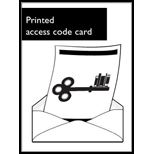
To name:
The six major regions of the brain
Introduction:
Brain is a part of the central nervous system, which is responsible for performing crucial functions in the body. The various functions of the brain include, control and coordination of the body.
Explanation of Solution
The major parts of the brain are:
Cerebrum: The cerebrum is the largest portion of the human brain and, is made up of left and right hemispheres. This region is responsible for conscious thoughts, sensations, memory, intellect and other higher mental functions.
Cerebellum: The cerebellum is the second largest portion of the human brain, and is composed of hemispheres, which are covered by the cerebellar cortex. This region is responsible for performing the same movements again and again.
Diencephalon: The diencephalon is a structure, composed of left and right thalamus. The hypothalamus and the pituitary gland are the parts of the diencephalon. The diencephalon provides a structural and functional link in between the brain stem and the cerebral hemispheres.
Midbrain: It is a part of the brainstem, and is responsible for conducting information to the cerebrum from the cerebellum and vice versa.
Pons: It is a part of the brainstem, and is responsible for connecting the brain to the spinal cord, and somatic and visceral motor control.
Medulla oblongata: It is a part of the brainstem, which connects the brain to the spinal cord. The functions of the medulla oblongata include regulation of autonomic functions such as, heart rate and digestion.
The six major regions of the brain are: the cerebrum, cerebellum, diencephalon, midbrain, pons, and medulla oblongata.
Want to see more full solutions like this?
Chapter 14 Solutions
Modified Mastering A&p With Pearson Etext -- Valuepack Access Card -- For Fundamentals Of Anatomy & Physiology
 Human Anatomy & Physiology (11th Edition)BiologyISBN:9780134580999Author:Elaine N. Marieb, Katja N. HoehnPublisher:PEARSON
Human Anatomy & Physiology (11th Edition)BiologyISBN:9780134580999Author:Elaine N. Marieb, Katja N. HoehnPublisher:PEARSON Biology 2eBiologyISBN:9781947172517Author:Matthew Douglas, Jung Choi, Mary Ann ClarkPublisher:OpenStax
Biology 2eBiologyISBN:9781947172517Author:Matthew Douglas, Jung Choi, Mary Ann ClarkPublisher:OpenStax Anatomy & PhysiologyBiologyISBN:9781259398629Author:McKinley, Michael P., O'loughlin, Valerie Dean, Bidle, Theresa StouterPublisher:Mcgraw Hill Education,
Anatomy & PhysiologyBiologyISBN:9781259398629Author:McKinley, Michael P., O'loughlin, Valerie Dean, Bidle, Theresa StouterPublisher:Mcgraw Hill Education, Molecular Biology of the Cell (Sixth Edition)BiologyISBN:9780815344322Author:Bruce Alberts, Alexander D. Johnson, Julian Lewis, David Morgan, Martin Raff, Keith Roberts, Peter WalterPublisher:W. W. Norton & Company
Molecular Biology of the Cell (Sixth Edition)BiologyISBN:9780815344322Author:Bruce Alberts, Alexander D. Johnson, Julian Lewis, David Morgan, Martin Raff, Keith Roberts, Peter WalterPublisher:W. W. Norton & Company Laboratory Manual For Human Anatomy & PhysiologyBiologyISBN:9781260159363Author:Martin, Terry R., Prentice-craver, CynthiaPublisher:McGraw-Hill Publishing Co.
Laboratory Manual For Human Anatomy & PhysiologyBiologyISBN:9781260159363Author:Martin, Terry R., Prentice-craver, CynthiaPublisher:McGraw-Hill Publishing Co. Inquiry Into Life (16th Edition)BiologyISBN:9781260231700Author:Sylvia S. Mader, Michael WindelspechtPublisher:McGraw Hill Education
Inquiry Into Life (16th Edition)BiologyISBN:9781260231700Author:Sylvia S. Mader, Michael WindelspechtPublisher:McGraw Hill Education





